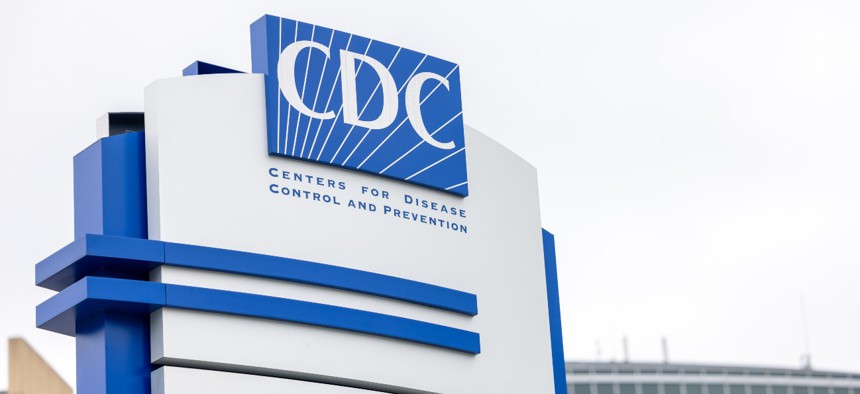
A CDC spokesperson said in a statement on Friday that the “vaccine administration and reporting process is complex and decentralized–as it is for much of the collection of public health data.” Nathan Posner/Anadolu Agency via Getty Images
Coronavirus Roundup: Researchers Allege COVID Vaccination Data Woes
There’s a lot to keep track of. Here’s a list of this week’s news updates and stories you may have missed.
A report from university researchers released this week flags potential issues with the Centers for Disease Control and Prevention's COVID-19 vaccination data.
The researchers from Northeastern University, Harvard University, Rutgers University, and Northwestern University (who make up the COVID States Project) compared the CDC’s data with that of the Kaiser Family Foundation and COVID States Project. “The CDC data offer an increasingly inaccurate view of vaccination rates with each round of booster shots, with potentially important policy implications,” the report said. “Most obviously, there is a systematic overestimate of the population that has received a single shot/primary series, and an underestimate of the population that has received boosters.”
A CDC spokesperson said in a statement on Friday that the “vaccine administration and reporting process is complex and decentralized–as it is for much of the collection of public health data.” Due to the complexity “CDC has been transparent in outlining the methods used for assessing vaccine doses administered and the limitations to the data as described in the footnote section of the COVID Data Tracker,” said the spokesperson. “CDC has made clear that new data authorities would fundamentally improve disease response, but in their absence, we will continue to work closely with states and partners to enhance the quality of vaccine data.”
With the upcoming end of the public health emergency in May, the CDC has been working to sign voluntary data use agreements with states, so they can still get access to vaccination data, the CDC spokesperson added. Here are some of the other recent headlines you might have missed.
On Monday, President Biden signed the law that requires the director of national intelligence to declassify information related to the origins of COVID-19. “My administration will continue to review all classified information relating to COVID–19’s origins, including potential links to the Wuhan Institute of Virology,” he said in a statement. “In implementing this legislation, my administration will declassify and share as much of that information as possible, consistent with my constitutional authority to protect against the disclosure of information that would harm national security.”
When asked about protecting national security information during the briefing on Tuesday, John Kirby, national security spokesman, said: “One should not read into that statement that he's, sort of, laying a foundation here to be overly secretive. He believes strongly that we've got to find the roots of the origins of COVID, so that we can prevent a future pandemic.”
In a white paper about the Small Business Administration's use of 7(a) loan program, its most common loan program, during the pandemic, SBA’s inspector general warned about negative effects of staffing shortages. “An SBA Office of Credit Risk Management official stated that during the pandemic, SBA staff turnover and changes affected staff resources for overseeing its 7(a) loan program,” the paper said. “The office managed staffing shortages by reassigning staff responsibilities and priorities and offering overtime to meet its lender review requirements. According to SBA officials, as of August 24, 2022, Office of Credit Risk Management staffing levels decreased from 42 to 26 employees.” This decrease in staff “could affect SBA’s FY 2023 goal for oversight reviews, which help ensure lender compliance with program requirements.”
The White House will be disbanding the coronavirus response team in May, after the public health emergency ends, The Washington Post reported on Wednesday. Some of the team members have already left and Ashish Jha, COVID response coordinator, will likely leave the administration after the team is shut down, according to the report.
A former State Department employee who was stationed in the Philippines and sentenced to 15 years in prison for sexually abusing two minors said his actions were due to a COVID-19 inflection, ABC 8News reported on Monday.
Help us understand the situation better. Are you a federal employee, contractor or military member with information, concerns, etc. about how your agency is handling the coronavirus? Email us at newstips@govexec.com.







